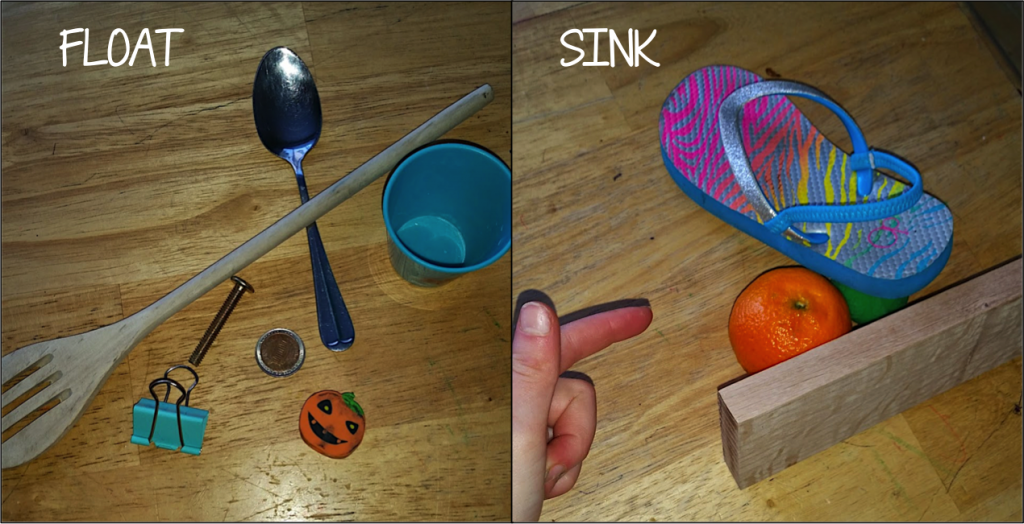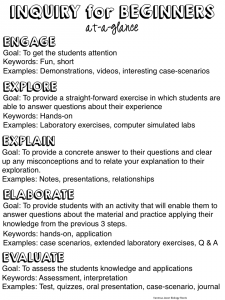A few summers ago I received a phone call from my department head “warning” me that I may be teaching two sections of freshman physical science. It was just a warning, not a guarantee, but that summer I probably saw more Neil deGrasse Tyson in my living room than my own husband. I knew that physical science generally had many misconceptions, and I wanted to conquer them victoriously, one freshman class at a time. Turns out, it’s really quite difficult to clear up any misconceptions in one year, especially when you are teaching fifteen-year-olds. That's when I realized how crucial the primary years are in teaching science.
You may have seen this clip, where a few Harvard Graduates answer a science question:
These are some of the most common misconceptions among elementary science:
1. Stars and constellations appear in the same place in the sky every night.
2. The sun rises exactly in the east and sets exactly in the west every day.
3. We experience seasons because of the earth's changing distance from the sun (closer in the summer, farther in the winter).
4. The moon can only be seen during the night.
5. The phases of the moon are caused by the shadow of the earth on the moon.
6. There is no relationship between matter and energy.
7. If energy is conserved, why are we running out of it?
8. Rocks must be heavy.
9. Materials can only exhibit properties of one state of matter.
10. Melting/freezing and boiling/condensation are often understood only in terms of water.
11. The English system is easier to use than the metric system.
12. Mass and weight are the same and they are equal at all times.
13. Heat and temperature are the same.
What can elementary teachers do?
Science can start to get really complicated for students right around grades 6 and 7 as the abstractedness increases, along with the need for more laboratory tools and expertise. Elementary teachers have the most important job of us all: they are the ones that are laying the foundation for science education. If it sounds like a big job, it is. It's an important job, and something to take pride in. Elementary teachers need to make sure that by the time their students reach grade 6, as disconnected as that may seem at the moment, the students are prepared for the new level of science.
Our classrooms are opportunities. It is our job to make sure that students excel to be the best they can be. As far as misconceptions, nobody is immune. No matter how long you’ve been teaching, how many degrees you have, everyone has misconceptions. But, even when we've cleared up our own, sometimes the material gets "lost in translation" as we pass it on to our students.
The most effective method in conquering any scientific misconceptions is to use inquiry-based learning in the science classroom. Inquiry-based learning is asking questions and solving problems as a class instead of spewing out facts that need to be memorized. Inquiry-based learning encompasses all of the multiple intelligences that we strive to reach in our classrooms.
“The 5 E’s of Scientific Inquiry:”
ENGAGE students using a “hook” activity that really pulls them in. Make it as fun as possible! Short videos could be used, too!
EXPLORE- Do a fun lab or activity; ask lots of questions! Have your students create their own questions and try to answer them.
EXPLAIN- Give them the reasons why.
ELABORATE- Tie in your explanation with their activities and a further demonstration if possible.
EVALUATE- Give students scenarios or problems to solve; ask questions.
Some teachers might be turned off by inquiry-based learning because it requires a concrete understanding to execute the activities, as well as more preparation. Here’s the thing about inquiry: it’s not the easiest method (at least at first), but it is one of the most effective. If you are not doing any inquiry-based lessons, I would advise that you add one or two of the 5 E’s to each science unit, each year, until you have mastered each of the 5 E’s of inquiry. Start off with a demonstration, or an engaging activity. You are probably already equipped to do the explaining and evaluating! However, not all science subjects require inquiry-based learning for maximum retention. Using inquiry to teach about forces and Newton's laws would probably have a more lasting impact and worthwhileness than using inquiry to teach about cells. You can pick and choose, and chip away at a one year at a time. Some scientific inquiry is better than none.
In the U.S., we tend to use flawless student work as an exemplary model for the rest of the class. But in other countries, such as Japan, the teacher will call on struggling students to share their work. If you think about it, this makes perfect sense. The struggling student brings his or her work to the board and other struggling students benefit as they are walked through the appropriate steps. However, in the U.S. this might be associated with embarrassment. In an inquiry-based lesson, it creates a more problem-solving atmosphere in which students work together with the aid of their teachers to reach conclusions. This could potentially negate any embarrassment among struggling students and make them more willing to share their misconceptions as a class.
It's never too early for Inquiry! I asked my Kindergartener do some "experiments" at home. I gave her a small pile of household objects: a penny, a paperclip, a quarter, a screw, a spoon, a clementine, a large piece of wood, a flip-flop and a ball of play-do. I had her divide them into two piles: one for items she predicted would float in water, and one for items she predicted would sink in water.

Then, we experimented! I didn't even mention the word density. Heck, no! But, it did show her that the size and weight of the objects cannot be used to determine if they sink or float. When she asked why the wood floated, I showed her a net (from the bag of clementines) and told her that there were tiny spaces in the wood that we could not see, giving it the ability to float! (Ok, ok... I may have mentioned volume).

 Where to start? Check out this Science Misconceptions Podcast by Michael Horton, or this 50 Science Misconceptions video. And please check out my "Inquiry for Beginners at-a-glance" complete with a sample density lesson for upper elementary.
Where to start? Check out this Science Misconceptions Podcast by Michael Horton, or this 50 Science Misconceptions video. And please check out my "Inquiry for Beginners at-a-glance" complete with a sample density lesson for upper elementary.  Vanessa Jason is a Massachusetts native and has taught science for 7 years at the high school level. She hosts her blog at Biology Roots and offers teaching materials at her TpT Store.
Vanessa Jason is a Massachusetts native and has taught science for 7 years at the high school level. She hosts her blog at Biology Roots and offers teaching materials at her TpT Store.

